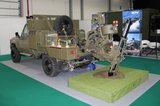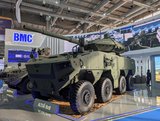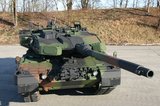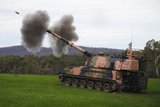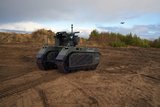Precision guidance kit for Canadian regiment
The 1st Regiment of the Canadian Army's Royal Canadian Horse Artillery started integrating Orbital ATK precision guidance kit at its base in Shilo, Manitoba starting from the first week of November 2016.
The integration of the kit, which is used in place of the current fuse on a conventional artillery shell, transforms the ammunition rounds into GPS-guided ones. The kit enables in-flight changes to the trajectory, enabling more precise target engagement.
The kit aims to improve the accuracy of an unguided projectile and reduce the risk of collateral damage and ammunition requirements. It uses conventional rounds and the in-service M777C1 Howitzer field artillery gun with its advanced digital fire control system. The kit can be fixed on the top of a conventional artillery projectile similar to an in-service artillery fuse.
The precision guidance kit initiative is expected to close out in 2018, and its approximate cost is forecast at $20.91 million. This includes the integration of the kit technology with the Canadian M777C1, and the cost of buying the M795 projectiles and guidance kit fuses.
More from Land Warfare
-
![World Defense Show 2026: Large vehicles and counter-drone systems take the limelight]()
World Defense Show 2026: Large vehicles and counter-drone systems take the limelight
Visitors who attended the first World Defense Show four years ago continue to speak of the difficulties they faced with poor facilities and power problems. This year’s event emphasised its status as one of the major defence expositions and as a place where regional players and those less welcome at other shows could take centre stage.
-
![MKJ Warrior Series — The Nett Warrior Qualified Connector for Today’s Soldier Systems]()
MKJ Warrior Series — The Nett Warrior Qualified Connector for Today’s Soldier Systems
ITT Cannon’s MKJ Warrior connectors are designed for the harshest environments, delivering mission critical comms, navigation and USB data/power.
-
![Active vehicle protection comes to the forefront as Trophy and Iron Fist secure contracts]()
Active vehicle protection comes to the forefront as Trophy and Iron Fist secure contracts
Experience on the battlefield is accelerating the adoption of active protection systems as technologies continue to evolve to reflect shifting global defence needs.
-
![World Defense Show 2026: Hanwha increases Middle East presence and reveals Tigon 6x6 sale]()
World Defense Show 2026: Hanwha increases Middle East presence and reveals Tigon 6x6 sale
Shephard sat down with Hanwha Middle East and Africa president Sung Il at World Defense Show 2026 to hear about the company’s plans for the region and how it plans to use local industry success to win deals.
-
![Estonia builds Asia-Pacific links as it looks to scale defence industry capabilities]()
Estonia builds Asia-Pacific links as it looks to scale defence industry capabilities
Collaboration between Estonian defence companies and well-aligned firms in Asia-Pacific will form a key part of Tallinn’s ambitions to significantly grow its defence industrial base.







